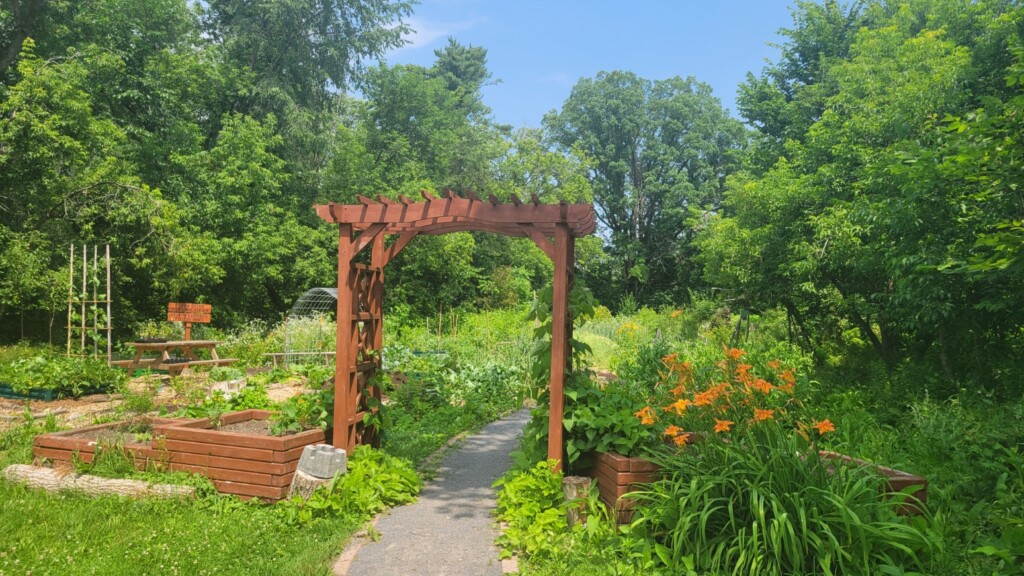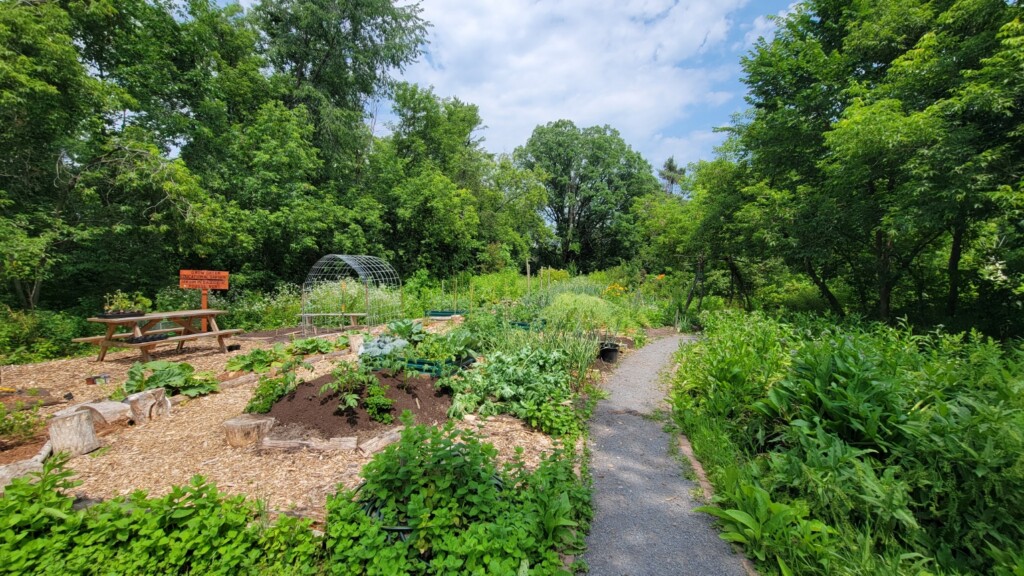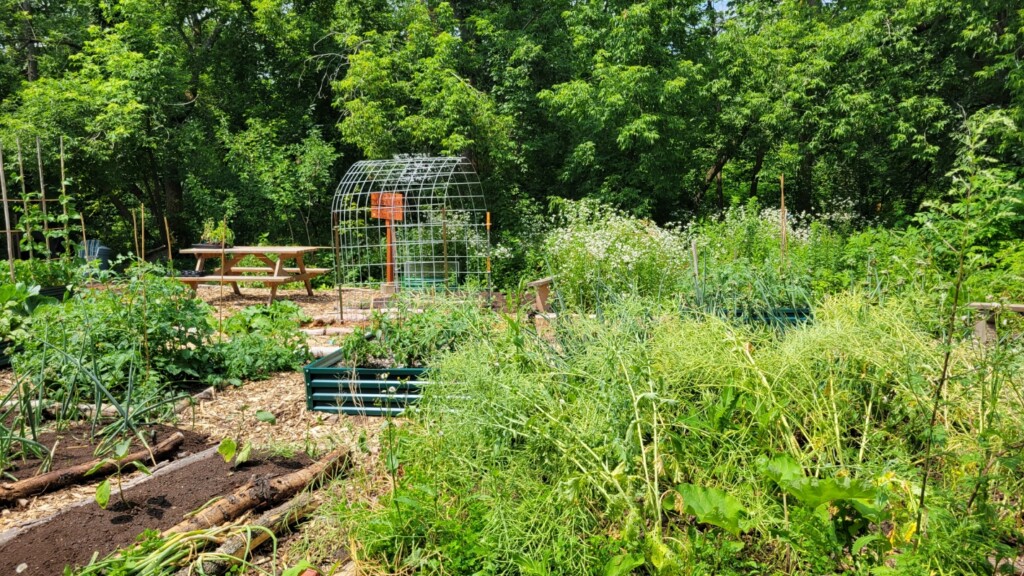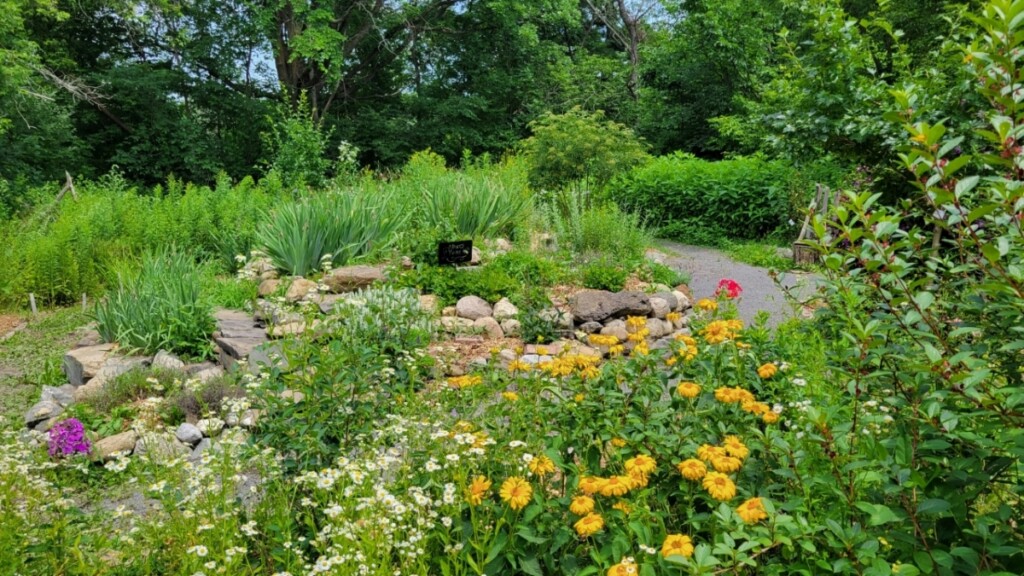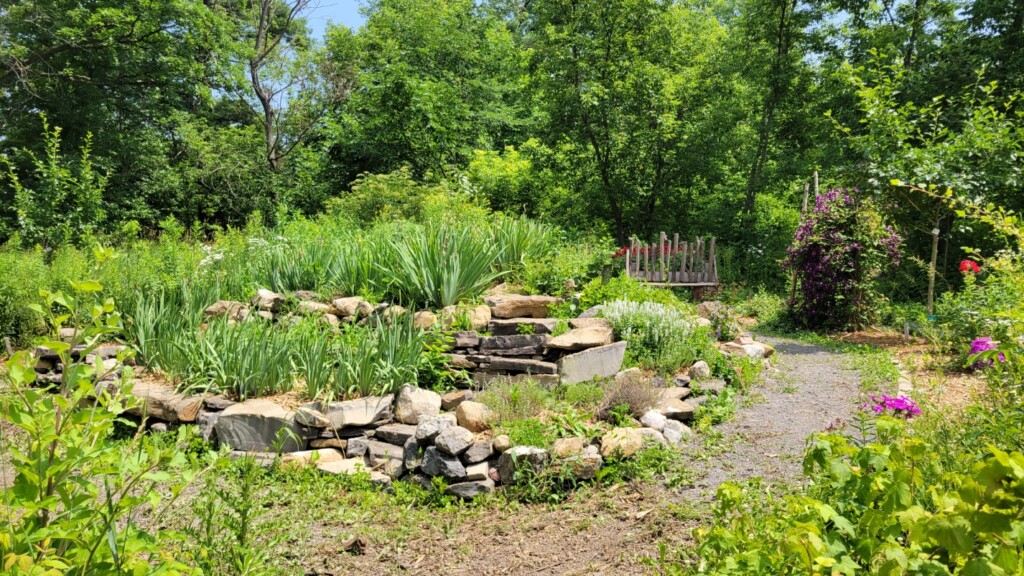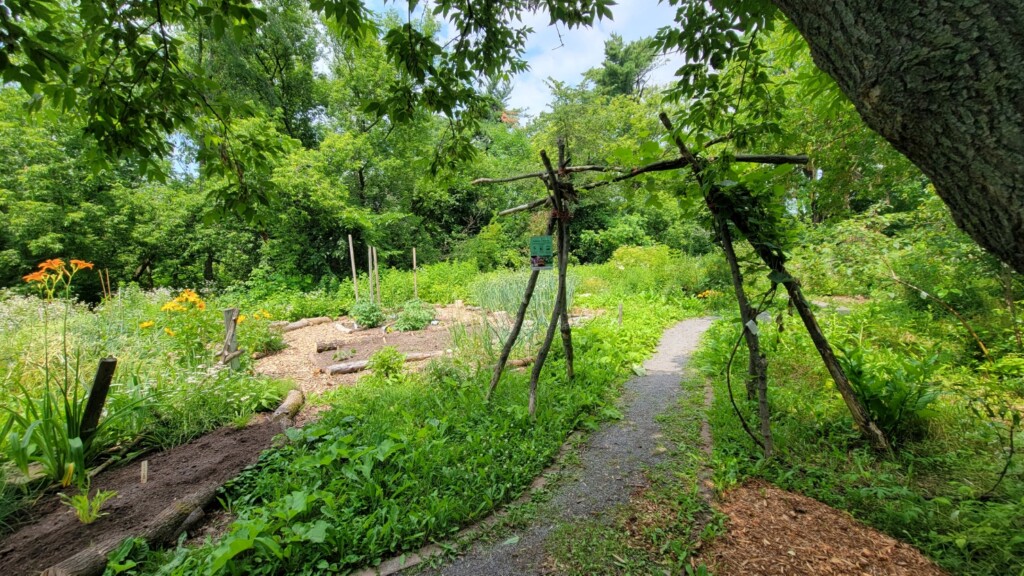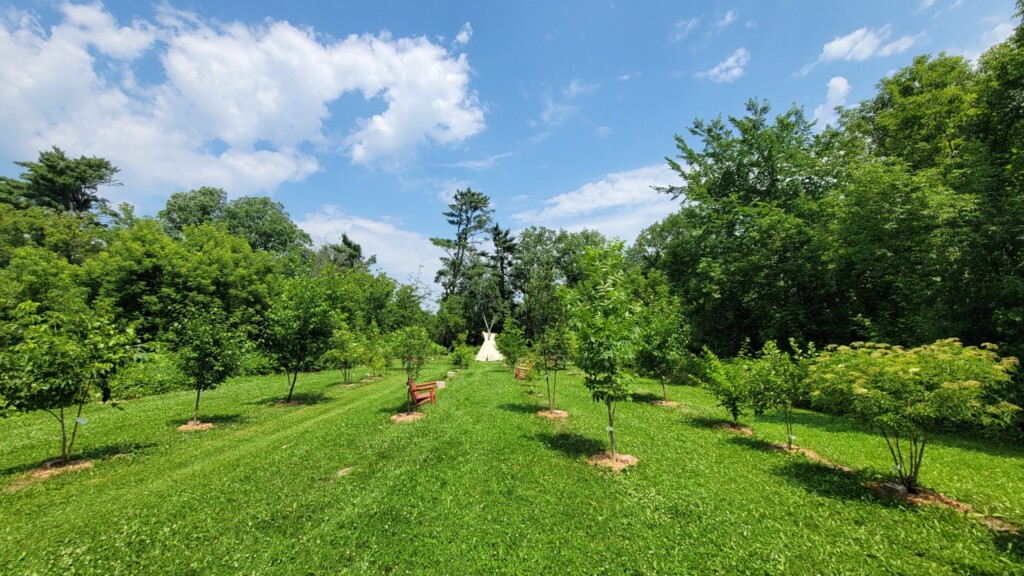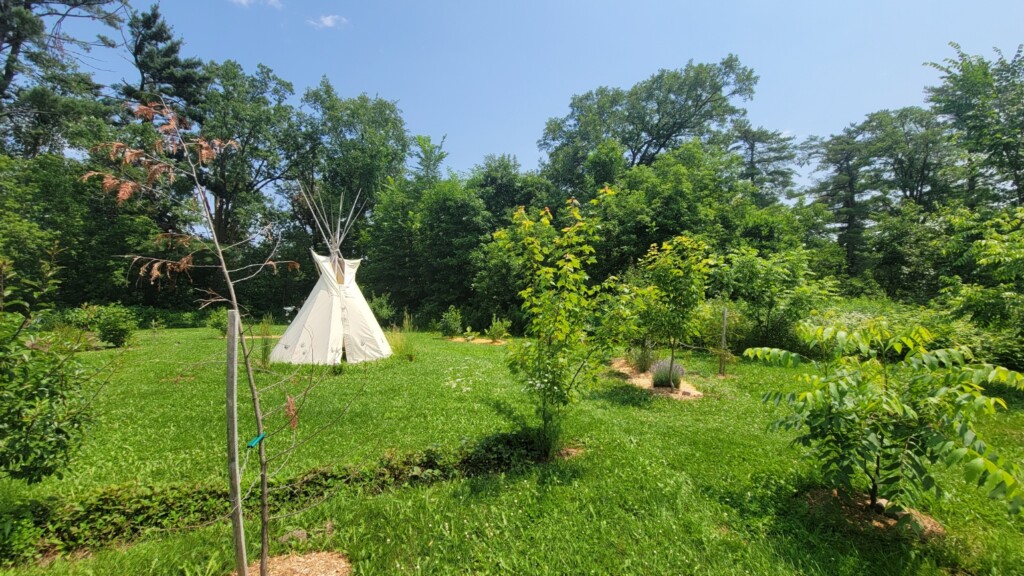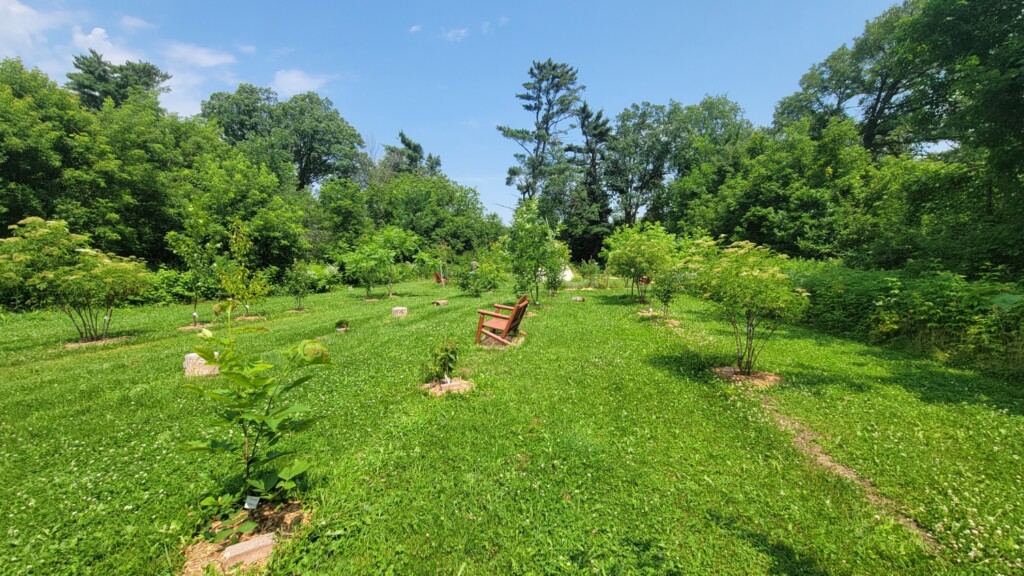Gardens
Educational garden
What is an educational garden?
This garden is intended as an educational tool to help the community develop its own agricultural resources. With the rise in prices in our grocery stores, materials for our constructions and all other resources, it is becoming increasingly important to devote time to building a self-sufficient environment. A vegetable garden is a great way to give back to the soil and nature while harvesting our food! The feeling of satisfaction at tasting our first tomato or our first cucumber is unmatched!
At Tucker House, we will be offering monthly workshops throughout the year. Participants will learn to follow all the steps necessary for a good harvest: design of the garden, planning, preparation of the soil and maintenance of a vegetable garden. In addition, our visitors will learn how to save their seeds each fall in preparation for the next season!
How amazing is that…economical and sustainable! All the more reason to take the first steps towards creating your first garden or, for the more experienced, to learn more and to ‘grow‘ your knowledge.
Meetings with our gardener and guided tours will also be offered and available!
Come visit us as soon as you have the opportunity!
Pollinator garden
What is a pollinator and a pollinator garden?
A pollinator is an animal that fertilizes a plant by moving pollen from one part of the flower to another. Bees are efficient pollinators because they feed on pollen. Did you know? Birds, butterflies, beetles, bats, hummingbirds, and other small mammals can also pollinate flowers!
When building the Pollinator Garden, our gardener carefully selected native plants like flowers, herbs, shrubs and trees that provide nectar or pollen to help support pollinators. A pollinator garden restores native ecosystems and provides food and refuge for pollinators who are threatened by habitat loss. Anyone can attract bees in the backyard!
Why is pollination important?
Approximately 80-95% of plant species found in natural habitats require pollination from animals. These plants support healthy ecosystems, clean the air, and stabilize soils. Pollinators are also important for food security: they are responsible for pollinating countless fruits, vegetables, and nuts we eat.
The garden is open to the public, come visit when you have a chance!
Easy tips for starting a pollinator garden:
- Plant native species that have co-evolved with pollinator species.
- Plant species that bloom at different times so pollinators have a constant source of food when they emerge in the spring through to the fall.
- Plant groups of four to five plants together. This makes it easier for pollinators to forage on a variety of species.
- Leave it be! Leave patches of your yard undisturbed for bees that nest underground.
Bee friendly plants
These species are well adapted to the soil and climate in Eastern Ontario:
- Aster
- Borage
- Coneflower
- Dogwood
- Geranium
- Goldenrod
- Milkweed
- Phlox
- Sedum
- Sunflower
- Violet
Map of our garden
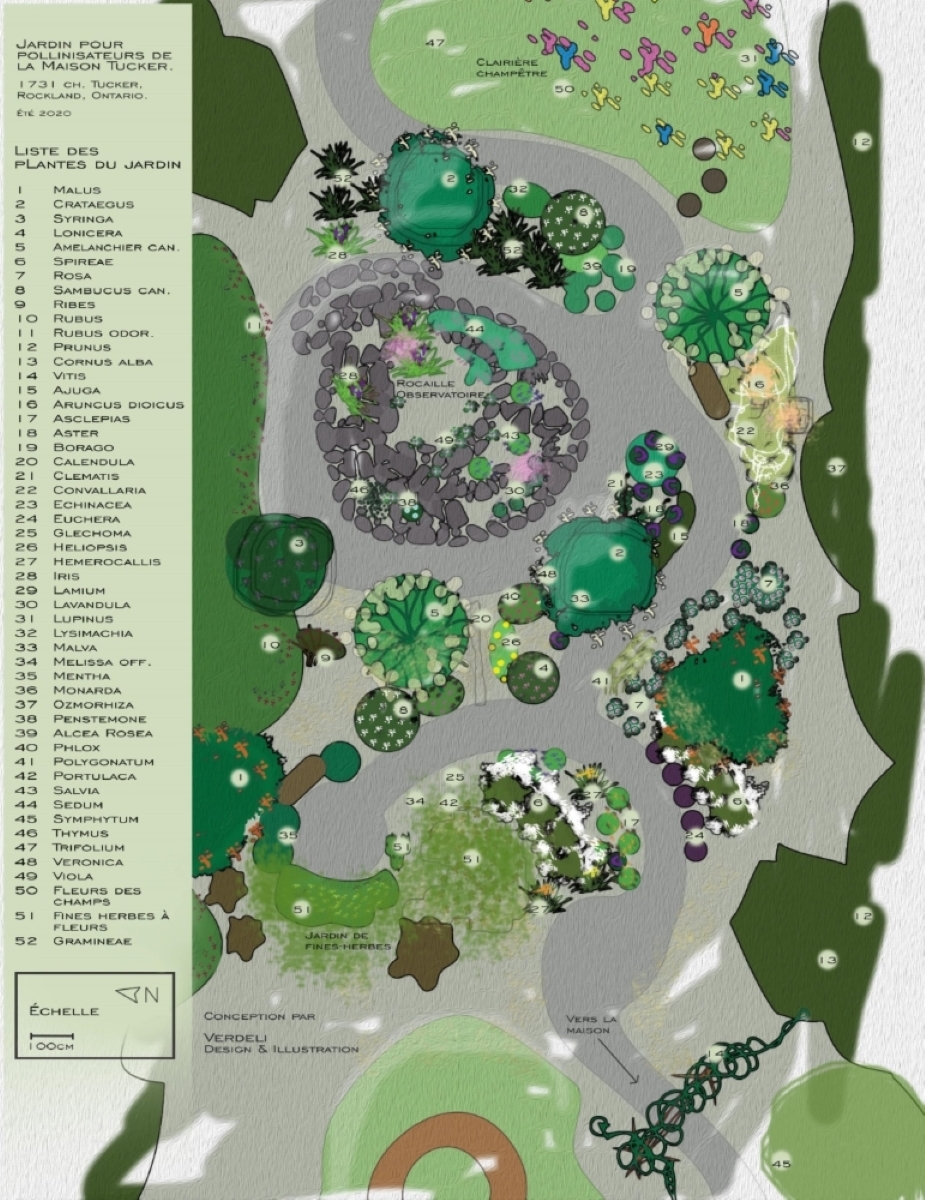
Wellness and recognition garden / Arboretum
What is a Wellness and Recognition Garden?
Tucker House proudly maintains an arboretum, an educational garden and a pollinator garden.
We now wish to present our new Wellness and Recognition Garden, adjacent to our current gardens.
The garden is three-fold:
The Wellness Garden incorporates a herbal area, with plants traditionally used for teas, medicines and ceremonies. We also display traditional utility or spirituality plants. These herbs and plants are now used as educational tools on how to live in a sustainable world the way our ancestors did before us and to pay tribute to Indigenous cultures by offering a meeting point around the new Tipi.
While being pleasant to the eye and educational, the Wellness and Recognition Garden is also a great way to familiarize the local community with the Indigenous culture.
The project now being complete, we offer annual workshops based on the plants found in this new garden: making teas and home remedies from Aboriginal knowledge, cultivating using traditional methods, storytelling sessions, language awareness, school and public tours and, of course, special events such as weddings.
The new Wellness and Recognition Garden is a gathering place for the whole community.
———
All the gardens presented above are sponsored by TD Friends of the Environment Foundation.

